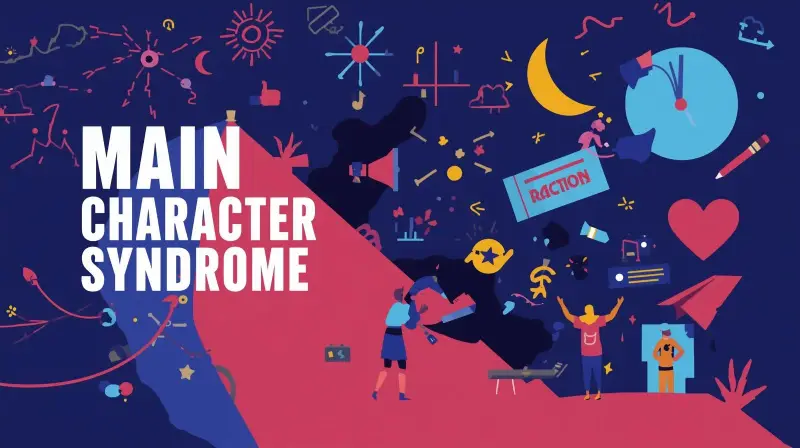Insomnia is a condition that affects many people worldwide, causing a variety of disruptions in their daily lives. Whether it’s difficulty falling asleep, staying asleep, or waking up too early, insomnia can take a significant toll on both physical and mental well-being. In this article, we will explore the signs and symptoms of insomnia, its causes, and how it can impact various aspects of life. With a deeper understanding, those struggling with sleep disturbances can better identify insomnia and seek appropriate treatment or support.
What is Insomnia?

Insomnia is a sleep disorder where a person has trouble falling asleep, staying asleep, or waking up too early, and doesn’t feel rested upon waking. While everyone may experience occasional sleepless nights due to stress or a busy schedule, insomnia is more persistent, typically lasting at least three nights a week for three months or more. This condition can be short-term (acute) or long-term (chronic), with each form having varying degrees of impact on one’s overall health.
Signs and Symptoms of Insomnia

Insomnia can manifest in different ways, and individuals may experience varying signs and symptoms depending on the severity and duration of their condition. These symptoms often affect both physical and mental well-being and understanding them is key to identifying insomnia and seeking appropriate treatment.
1. Difficulty Falling Asleep
One of the most noticeable signs of insomnia is the inability to fall asleep within a reasonable amount of time after lying down. For most people, it typically takes around 15-20 minutes to drift off to sleep. However, those with insomnia may spend long hours in bed, tossing and turning, unable to relax enough to enter the deeper stages of sleep. This frustration can make the person anxious, further hindering their ability to fall asleep. Over time, the act of trying to sleep becomes stressful, which only compounds the problem.
2. Frequent Awakenings During the Night
Another common symptom is waking up multiple times during the night. Even if a person manages to initially fall asleep, they may find themselves waking up several times throughout the night. These awakenings can occur at any point in the sleep cycle, leaving individuals unable to reach the deep, restorative phases of sleep. Some people may even wake up and struggle to fall back asleep, spending hours in a state of restlessness. This pattern of interrupted sleep can create a sense of exhaustion, as the individual is unable to complete a full sleep cycle.
3. Waking Up Too Early in the Morning
Waking up too early, long before the alarm or at an unusually early hour, is another key indicator of insomnia. This often happens despite going to bed at a reasonable hour. The person may feel groggy or still tired when waking up but be unable to return to sleep. This leads to sleep deprivation, which can impact their ability to function effectively throughout the day. Early awakenings are especially frustrating because, despite spending enough time in bed, the person still feels unrefreshed and fatigued when morning arrives.
4. Feeling Unrefreshed Upon Waking
Even if someone manages to get some sleep, they may not feel rested or rejuvenated the next morning. This lack of refreshment after sleep is a hallmark of insomnia. The person might feel as if they’ve hardly slept at all, despite being in bed for an adequate number of hours. This could result from the poor quality of sleep or the interruptions throughout the night. Individuals often report feeling drained or sluggish, which can interfere with daily activities and contribute to irritability and poor concentration.
5. Daytime Fatigue or Sleepiness
Daytime fatigue and excessive sleepiness are some of the most debilitating effects of insomnia. Individuals who experience frequent sleep disturbances may find themselves feeling tired or drowsy during the day, even after a full night in bed. This excessive tiredness can interfere with daily responsibilities and impact work or school performance. It can also affect personal relationships, as individuals may become more withdrawn, irritable, or disengaged due to lack of energy. The constant struggle to stay awake and alert makes everyday tasks seem more difficult, which can lead to feelings of frustration and helplessness.
6. Irritability and Mood Swings
The impact of insomnia goes beyond physical tiredness; it also affects emotional well-being. People with insomnia may find themselves feeling more irritable, anxious, or even depressed due to the lack of rest. Sleep deprivation directly influences the brain’s emotional regulation, making it harder to cope with stress or maintain a positive mood. Little things that wouldn’t normally bother the person can become triggers for outbursts of frustration or sadness. Insomnia can also exacerbate pre-existing mood disorders, such as depression or anxiety, creating a cycle of negative emotions that further disrupt sleep.
7. Difficulty Concentrating or Remembering Things
When sleep is insufficient, cognitive function suffers. One of the most common effects of insomnia is a decline in memory, focus, and overall mental clarity. Those affected may find it difficult to concentrate on tasks, whether at work, school, or even simple daily chores. The inability to focus can lead to mistakes and decreased productivity. Additionally, people with insomnia may experience memory lapses or trouble retaining new information, which can hinder learning and problem-solving abilities. This cognitive impairment is often one of the most frustrating symptoms, as it interferes with both personal and professional performance.
8. Increased Stress or Anxiety
While stress is a common cause of insomnia, it is also a symptom. The frustration of not being able to sleep can worsen existing feelings of anxiety and stress, creating a vicious cycle. As people lie awake at night, their minds tend to wander to worries about work, relationships, or financial concerns. This ongoing mental chatter can make it even harder to relax and fall asleep. The anticipation of another sleepless night may contribute to feelings of dread or helplessness. Over time, this chronic anxiety can lead to more severe mental health issues, such as generalized anxiety disorder or panic attacks, which further complicate insomnia.
9. Lack of Interest in Social Activities
Sleep deprivation can also affect social interactions. People with insomnia often feel too tired or irritable to engage in activities they previously enjoyed, whether it’s hanging out with friends, participating in hobbies, or even attending social events. The lack of energy or enthusiasm to be around others can lead to social withdrawal and isolation. Over time, the inability to participate in social activities may lead to feelings of loneliness or disconnectedness. Additionally, the lack of sleep can make it difficult to manage relationships, causing strain between partners, family members, and colleagues.
10. Increased Reliance on Stimulants
As a result of daytime fatigue, individuals struggling with insomnia may turn to stimulants like caffeine, nicotine, or even energy drinks to stay awake and alert. While these substances can provide temporary relief, they can also worsen the underlying problem. Caffeine and nicotine are known stimulants that can disrupt sleep, particularly if consumed later in the day. As a result, people with insomnia may find themselves in a cycle where they rely on these substances to stay awake during the day, only to struggle even more with falling asleep at night.
11. Physical Symptoms like Headaches or Muscle Tension
In some cases, insomnia can manifest through physical symptoms such as headaches, muscle tension, or an overall feeling of discomfort. Sleep deprivation can cause the body to become more sensitive to pain, making headaches more frequent or intense. Muscle tension, especially in the neck, shoulders, and jaw, is also a common issue for those struggling with sleep. These physical symptoms can add to the sense of exhaustion and make it harder to cope with the challenges of daily life.
Causes of Insomnia

There are many factors that can contribute to insomnia, ranging from lifestyle habits to underlying medical conditions. Understanding the potential causes of insomnia is essential in determining the best course of action for treatment.
1. Stress
Stress is one of the most common causes of insomnia. Whether due to work pressures, relationship issues, financial concerns, or personal struggles, stress can keep the mind active and make it difficult to relax enough to sleep. In turn, the frustration of not being able to sleep can worsen stress, creating a cycle of sleeplessness.
2. Anxiety and Depression
Mental health conditions like anxiety and depression can significantly impact sleep. People with anxiety may find themselves constantly worrying about various aspects of their lives, preventing them from falling asleep. Similarly, depression can cause feelings of sadness or hopelessness, which may interfere with the ability to rest peacefully.
3. Poor Sleep Hygiene
Sleep hygiene refers to the habits and environment that promote good sleep. Poor sleep hygiene, such as irregular sleep schedules, excessive caffeine consumption, or an uncomfortable sleep environment, can disrupt the body’s natural sleep-wake cycle, contributing to insomnia.
4. Medications
Certain medications can cause insomnia as a side effect. These may include medications for high blood pressure, asthma, allergies, depression, and anxiety. Stimulants like caffeine and nicotine can also contribute to sleep disturbances.
5. Chronic Pain and Medical Conditions
People with chronic pain conditions, such as arthritis, fibromyalgia, or back pain, may find it difficult to sleep due to discomfort. Similarly, medical conditions like asthma, acid reflux, or sleep apnea can disrupt sleep, leading to insomnia.
6. Hormonal Changes
Hormonal fluctuations can affect sleep, particularly in women. Changes related to pregnancy, menopause, or menstruation can interfere with sleep patterns. The hormonal shifts during these times can lead to difficulty falling asleep or staying asleep, making insomnia a common concern for women in these life stages.
7. Caffeine and Alcohol
Caffeine is a well-known stimulant that can interfere with sleep, particularly if consumed too close to bedtime. Similarly, while alcohol may initially help with falling asleep, it can disrupt the later stages of the sleep cycle, leading to fragmented and poor-quality sleep.
Impact of Insomnia

The effects of insomnia are not just limited to disrupted sleep. Chronic insomnia can have far-reaching consequences that impact an individual’s physical health, mental well-being, and quality of life.
Physical Health Implications
Chronic insomnia can lead to a host of physical health problems. Sleep plays a crucial role in maintaining a healthy immune system, and prolonged sleep deprivation can weaken the body’s ability to fight infections. Additionally, people with insomnia are at a higher risk of developing conditions like high blood pressure, heart disease, and diabetes.
Mental Health Implications
The link between insomnia and mental health is significant. Sleep deprivation can exacerbate conditions like anxiety and depression. In some cases, insomnia can be a symptom of an underlying mental health disorder, and vice versa. The lack of restorative sleep can lead to cognitive impairment, memory problems, and heightened emotional sensitivity.
Impact on Quality of Life
Insomnia can negatively impact all aspects of life, from work to personal relationships. Daytime fatigue, difficulty concentrating, and irritability can lead to decreased productivity at work and strained relationships with family and friends. Additionally, the constant worry about not being able to sleep can increase stress and anxiety, creating a cycle that is difficult to break.
Managing Insomnia

Fortunately, insomnia is treatable, and there are various strategies to improve sleep quality. Treatment options depend on the underlying cause of insomnia and may include lifestyle changes, therapy, and medication.
1. Cognitive Behavioral Therapy for Insomnia (CBT-I)
CBT-I is a highly effective treatment for chronic insomnia. This therapy helps individuals change their sleep-related thoughts and behaviors. It includes techniques such as stimulus control, sleep restriction, and relaxation training to help individuals develop better sleep habits.
2. Improving Sleep Hygiene
Practicing good sleep hygiene can significantly improve sleep quality. This includes maintaining a consistent sleep schedule, creating a comfortable sleep environment, limiting caffeine and alcohol intake, and engaging in relaxing activities before bedtime.
3. Medications
In some cases, healthcare providers may prescribe medications to help with sleep. These may include sleep aids, such as benzodiazepines or non-benzodiazepine sedatives, as well as antidepressants or antihistamines that have sedating effects. However, medications are typically used on a short-term basis to avoid dependence.
4. Relaxation Techniques
Relaxation techniques, such as deep breathing exercises, progressive muscle relaxation, and mindfulness meditation, can help calm the mind and prepare the body for sleep. Regular practice of these techniques can reduce the anxiety and stress that often contribute to insomnia.
Conclusion
Insomnia is a complex condition that affects many people around the world. By understanding its signs, symptoms, and causes, individuals can take the necessary steps to improve their sleep quality and overall well-being. Whether through behavioral therapy, lifestyle changes, or medication, it is possible to manage insomnia and regain restful, restorative sleep. If you or someone you know is struggling with insomnia, seeking guidance from a healthcare professional is an important first step in finding a solution.




